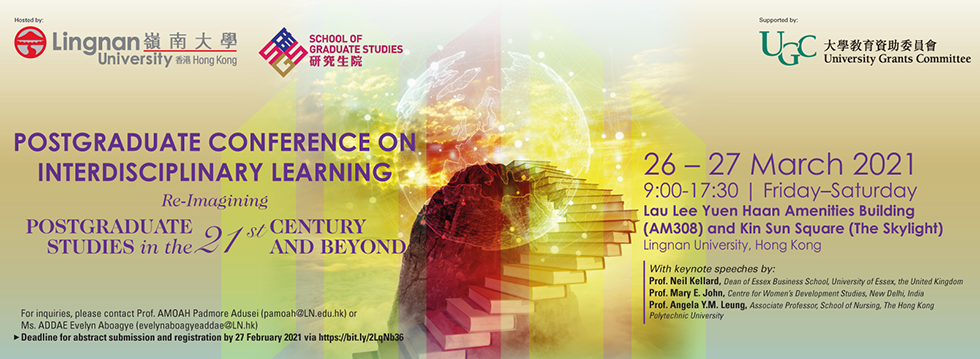
Rethinking research in university spaces: The post pandemic era
Start Date
26-3-2021 12:15 PM
End Date
26-3-2021 12:30 PM
Description
Universities are spaces where students are not limited to academics, as they act and are positioned as engaged intellectuals (Taylor*, 2004). Universities are moving away from this role where human capacity remains unexplored and students are restricted as consumers (Brown, 2011). In the context of India, the role of universities is becoming even more complex posing challenges for research in this pandemic era (Maini, 2021). Post pandemic era had led to the emergence of issues which are critical for the smooth functioning of universities including facilitation of research as well as teaching. The challenges which are created in the pandemic leads to the paramount significance and utilisation of modern technologies.
The two most significant steps to understand this transformation and transition towards modern technologies is to analyse the methods of access and adaptation by both teachers and learners. In the context of India and most developing Countries the first step is to understand and decode “The Digital Divide”.
As academician, I believe high quality data and the Family Life Study is a way to seek the impact we can achieve with our applied social science research if we collaborate, identify opportunities to learn from one another, and break down institutional walls and siloes. It will further lead to framing and institutionalising scholar-centred policy reforms with the specific goal to develop and strengthen a research ecosystem in the current and post-pandemic contexts.
Recommended Citation
Kaushik, A., & Saha, S. (2021, March). Rethinking research in university spaces: The post pandemic era. Presented at the Postgraduate Conference on Interdisciplinary Learning: Re-Imagining Postgraduate Studies in the 21st Century and Beyond. Lingnan University, Hong Kong.
Rethinking research in university spaces: The post pandemic era
Universities are spaces where students are not limited to academics, as they act and are positioned as engaged intellectuals (Taylor*, 2004). Universities are moving away from this role where human capacity remains unexplored and students are restricted as consumers (Brown, 2011). In the context of India, the role of universities is becoming even more complex posing challenges for research in this pandemic era (Maini, 2021). Post pandemic era had led to the emergence of issues which are critical for the smooth functioning of universities including facilitation of research as well as teaching. The challenges which are created in the pandemic leads to the paramount significance and utilisation of modern technologies.
The two most significant steps to understand this transformation and transition towards modern technologies is to analyse the methods of access and adaptation by both teachers and learners. In the context of India and most developing Countries the first step is to understand and decode “The Digital Divide”.
As academician, I believe high quality data and the Family Life Study is a way to seek the impact we can achieve with our applied social science research if we collaborate, identify opportunities to learn from one another, and break down institutional walls and siloes. It will further lead to framing and institutionalising scholar-centred policy reforms with the specific goal to develop and strengthen a research ecosystem in the current and post-pandemic contexts.

